Northampton committee splits on marijuana dispensary cap, sends measure to City Council with neutral recommendation
| Published: 01-10-2023 8:22 PM |
NORTHAMPTON — A decision on whether to cap the number of retail cannabis establishments within the city at 12 now rests with the full City Council after a four-member subcommittee on Monday was split on the idea before advancing it to the full council with a neutral recommendation.
After three hours of listening to public comments and deliberation for and against the cap, the council’s Committee on Legislative Matters found itself deadlocked at 2-2. Members James Nash and Marissa Elkins were against the cap, while Stan Moulton and Alex Jarrett took a neutral position. Nash then switched his vote to neutral in order to advance it to the full nine-member council.
The ordinance was brought forth at the previous City Council meeting by Councilors Rachel Maiore of Ward 7, Marianne LaBarge of Ward 6 and Karen Foster of Ward 2. Concerns raised by the councilors included the market being too saturated with cannabis businesses, as well as the impact the high number of stores — there are 11 dispensaries at present — is having on teenagers in the city.
“I’m not anti-cannabis at all — I know there are many benefits for adults,” Maiore said to the committee during its Monday meeting. “But, as you know, my background is public health, and I pored over the data, and it’s very solid on the detrimental impact on developing brains. And so now we are seeing statistically significant correlational data about a number of establishments and use of cannabis.”
Other municipalities in Hampshire County, such as Amherst and Hadley, have imposed license caps on cannabis stores. According to the Cannabis Control Commission, 60 municipalities in Massachusetts have imposed some form of license cap on retailers as of June 2022. Three towns in the county, Westhampton, Cummington and South Hadley, have retail bans in place, according to CCC data.
Mayor Gina-Louise Sciarra made a case at the meeting why she’s against the proposed cap. She said that limiting the number of establishments would lead to a market of businesses selling licenses to operate in the city, instead of simply a market of selling cannabis.
“Northampton’s restriction-free approach has resulted not only in more safe and legal cannabis, but also fewer empty storefronts downtown, good-paying jobs in the cannabis industry, and significant local tax revenues,” she said.
Robin Goldstein, an economist at the University of California Davis who specializes in the cannabis industry and who also writes as a food critic in western Massachusetts, echoed the mayor’s sentiments.
Article continues after...
Yesterday's Most Read Articles
 A Waterfront revival: Two years after buying closed tavern, Holyoke couple set to open new event venue
A Waterfront revival: Two years after buying closed tavern, Holyoke couple set to open new event venue
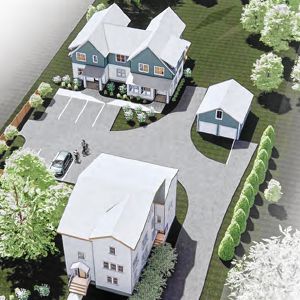 3-unit, 10-bed house in backyard called too much for Amherst historic district
3-unit, 10-bed house in backyard called too much for Amherst historic district
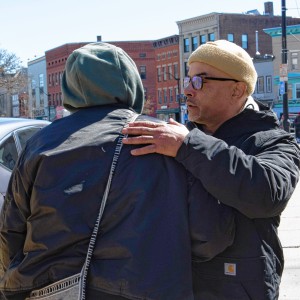 Settling in on the streets: Six months on, Division of Community Care finding niche in Northampton
Settling in on the streets: Six months on, Division of Community Care finding niche in Northampton
 Valley writers shine in initial round of Mass Book Award competition: 12 area authors and author/illustrators long-listed for 2024 awards
Valley writers shine in initial round of Mass Book Award competition: 12 area authors and author/illustrators long-listed for 2024 awards
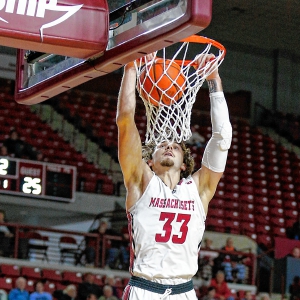 UMass basketball: Matt Cross announces he’s transferring to SMU for final year of eligibility
UMass basketball: Matt Cross announces he’s transferring to SMU for final year of eligibility
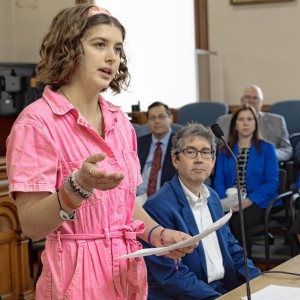 Democracy’s defense marches on: Constitutional lawyer, activist daughter highlight annual Law Day event
Democracy’s defense marches on: Constitutional lawyer, activist daughter highlight annual Law Day event
“It creates a secondary market for valuable, tradable licenses that may be worth hundreds of thousands of dollars,” he said. “In economic terms, we call that a cartel.”
More than a dozen residents spoke either for or against the cap at the meeting. Susan Voss, an engineering professor at Smith College and a former member of the Northampton School Committee, favored the restriction.
“I don’t know a single person in my social circle that thinks more cannabis shops are good for us, and these are people who like to go downtown, to walk around downtown with their kids,” she said. “I’d really like to see Northampton be known for something other than cannabis shops. I appreciate we get tax money from them, but we have a great city and we are sending a message whether we realize it or not to our kids that this is a normal thing for them to participate in.”
Northampton’s 11 dispensaries give it the second-highest number of dispensaries in the state among all municipalities, behind only Boston, according to CCC data. Holyoke ranks third with seven retailers. Northampton had 12 dispensaries before The Source closed in December.
Northampton’s proposed cap would only allow for one more cannabis business in the city, with exceptions to be provided for applicants who qualify as social equity candidates, such as being owned by people who are ethnic minorities or from an area adversely impacted by the war on drugs.
In the Committee on Legislative Matters deliberations, Chairman Alex Jarrett said he recognized the potential adverse economic effects of such a cap, but he said the potential effects the market was having on youth also made it a public health issue, leading to his support of a neutral recommendation.
“Given that the market looks to be contracting, this is likely a positive that wouldn’t have much effect into unless we see a large rise again in cannabis stores,” Jarrett said. However, he acknowledged that “because cannabis legalization is relatively new, there aren’t enough studies to draw firm conclusions.”
With the committee seemingly unable to move forward and at an impasse, Nash decided to change his vote to neutral after being allowed to speak more on the subject.
“I hope at some point in my lifetime, all the weed that’s available, all of the cannabis, happens to be legal weed,” said Nash, expressing concern that there is still a thriving black market. “That’s what I would like to see, and I’m just worried we’re interfering.”
Having reached the recommendation, the ordinance will go back to council for a second reading, where the matter of whether to implement the cap will be decided on. The second reading will occur at the next council meeting on Jan. 19.
Alexander MacDougall can be reached at amacdougall@gazettenet.com.

 ‘We can just be who we are’: Thousands show support for LGBTQ community at Hampshire Pride
‘We can just be who we are’: Thousands show support for LGBTQ community at Hampshire Pride Doors open at Tilton Library’s temporary home at South Deerfield Congregational Church
Doors open at Tilton Library’s temporary home at South Deerfield Congregational Church Area property deed transfers, May 2
Area property deed transfers, May 2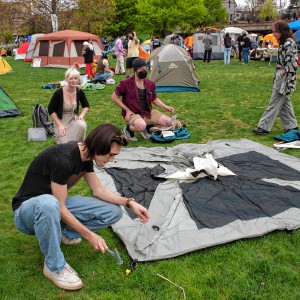 Pro-Palestinian encampment disperses at UMass, but protests continue
Pro-Palestinian encampment disperses at UMass, but protests continue
